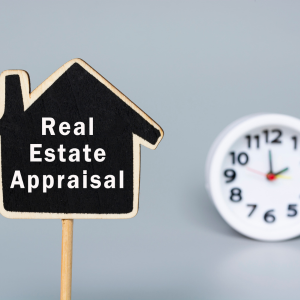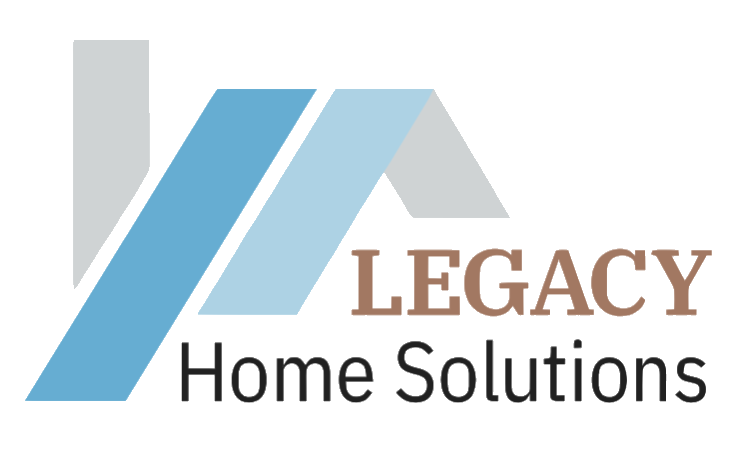
Understanding Home Appraisal Processes in Cleveland, Ohio
In the Cleveland, OH, real estate market, understanding the home appraisal process is crucial for sellers aiming to ensure a smooth closing. A home appraisal is a critical step that determines the property’s value based on its condition, location, and comparable sales in the area.
Sellers in Cleveland must be aware of essential repairs required to meet appraisal standards, as these can significantly impact the appraiser’s valuation. Common issues include outdated electrical systems, plumbing problems, roof damage, or structural defects that must be addressed before listing.
By proactively tackling these repairs, Cleveland homeowners can avoid potential valuation pitfalls and reduce closing delays. Sellers should also understand local market trends and how they influence property values during appraisals.
If you’re preparing to sell your home in Cleveland, partnering with Legacy Home Solutions, LLC can help you confidently navigate the appraisal process. Their expertise in the local market ensures you receive tailored advice on which repairs and upgrades will significantly impact your property’s value, helping you avoid costly surprises and achieve a successful sale.
Essential Home Repairs for Increasing Appraisal Value
When selling a home in Cleveland, ensuring essential repairs are completed before the appraisal can significantly increase its value and facilitate a smoother closing process. Addressing critical issues like roof leaks, plumbing problems, and outdated electrical systems enhances safety and boosts the property’s appeal to prospective buyers and appraisers.
Replacing old windows with energy-efficient models can improve insulation and reduce utility costs, making the home more attractive in an increasingly eco-conscious market. A fresh coat of paint and repairing damaged drywall can transform dated interiors into inviting spaces that reflect well during an appraisal.
Ensuring HVAC systems function optimally is crucial for demonstrating that the home is well-maintained. Additionally, updating kitchens and bathrooms with modern fixtures can yield high returns on investment by increasing the home’s overall market value.
By proactively addressing these essential repairs, Cleveland home sellers can enhance their property’s appraisal value while paving the way for a successful sale.
How to Prepare Your Cleveland Property for an Appraisal

Preparing your Cleveland property for an appraisal involves several crucial steps to ensure a smooth closing process. Start by addressing any essential repairs that could impact the appraised value.
Focus on critical areas such as the roof, plumbing, electrical systems, and HVAC units, which are often scrutinized during appraisals. Ensure all safety hazards are resolved and your home complies with local building codes.
Cosmetic improvements can also enhance the property’s appeal; consider fresh paint, clean carpets, and minor landscaping to create a positive impression. Declutter each room to highlight space and functionality while ensuring all appliances work properly.
Gather documentation of any upgrades or renovations you’ve completed, as these can positively influence the appraisal value. Being proactive in maintaining both the interior and exterior conditions will help you meet appraisal standards and reassure potential buyers about the quality of their investment in your Cleveland home.
If you’re unsure where to start or need guidance tailored to your specific property, don’t hesitate to reach out to Legacy Home Solutions, LLC for expert advice. Their team understands the Cleveland market and can help you identify which repairs and improvements will significantly impact your appraisal. Preparing properly with professional input can ultimately lead to a higher valuation and a smoother selling experience.
Common Repair Requirements in Cleveland Home Appraisals
When selling a home in Cleveland, understanding common repair requirements identified during an appraisal can be crucial for ensuring a smooth closing process. Appraisers often focus on essential areas such as the roof, foundation, and structural integrity of the property, as these are key indicators of a home’s overall condition.
To pass appraisal standards, roofs should be free of leaks and significant wear, while foundations must not show signs of considerable cracking or settlement issues that could indicate instability. Electrical systems are scrutinized; outdated or faulty wiring must be updated to meet safety codes.
Plumbing is another focal point, with appraisers checking for leaks, water pressure consistency, and functional drains. Additionally, HVAC systems must be operational and efficient to avoid costly future repairs for buyers.
Exterior elements like siding and windows are inspected for damage or deterioration that could affect energy efficiency or curb appeal. Proactively addressing these repair requirements can help Cleveland home sellers facilitate a seamless appraisal process and ensure a successful transaction.
If tackling these common appraisal repairs feels overwhelming or costly, you might consider alternative selling options that bypass traditional hurdles. Working with a company that buys homes in Cleveland and surrounding cities allows you to sell your property as-is without investing in extensive repairs. These buyers are familiar with local appraisal standards and often purchase homes quickly, providing a convenient solution for sellers who need speed or flexibility. This approach can be constructive for moving on without delays tied to conventional buyer requirements.
Navigating the Appraisal Contingency Process in Ohio Real Estate
Navigating the appraisal contingency process in Ohio real estate requires Cleveland home sellers to focus on essential repairs that can impact the property’s valuation and ensure a smooth closing. Before listing, sellers must address any significant issues that appraisers might flag, such as roof damage, outdated electrical systems, or plumbing leaks.
These repairs enhance the home’s marketability and prevent delays during the appraisal phase of a real estate transaction. In Cleveland’s competitive housing market, understanding common appraisal requirements is vital; buyers often rely on mortgage financing contingent upon a satisfactory home appraisal.
Sellers can avoid renegotiations or even deal cancellations by preemptively tackling necessary repairs. Ensuring compliance with safety standards and local building codes can also increase the likelihood of meeting the lender’s criteria, facilitating a seamless transition from contract acceptance to closing day.
Understanding Ohio’s Housing Regulations and Their Effect on Appraisals

Understanding Ohio’s housing regulations is crucial for Cleveland home sellers, especially regarding appraisals and required repairs. The state’s specific laws and guidelines can significantly impact the appraisal process, affecting a property’s valuation.
In Ohio, appraisers must adhere to stringent standards that consider the property’s condition and any necessary repairs. These regulations ensure that properties meet safety and livability standards before closing.
For Cleveland sellers, this means addressing essential repairs identified during an appraisal can prevent delays in closing. Common repair issues often highlighted include roof integrity, electrical system compliance, plumbing functionality, and structural soundness.
Ensuring these elements are up to code facilitates a smoother transaction and enhances the property’s market appeal. By proactively understanding and complying with Ohio’s housing regulations, sellers can streamline the appraisal process and avoid potential obstacles at closing time.
What Not to Say When the Appraiser Visits
Appraisals might feel like another box to check before a Cleveland closing, but they can trip up a deal if the conversation goes sideways. Knowing what not to blurt out during the walk-through keeps the process clean and lets the lender do its job.
Steer clear of phrases such as “I need this value for my mortgage” or “It’s worth more because my neighbor just sold”; those lines sound like pressure to the appraiser and can sway their opinion. Personal finances, applying next month’s bills to the checkbook, not the inspection sheet, are best left out of the dialogue altogether.
Highlighting every crack, squeak, or stain is a different trap; granting the appraiser a guided tour of flaws only magnifies them on the final report. Stick to receipts for recent upgrades, list mandatory repairs that the city has already signed off on, and then step back so the appraiser can move through without bait.
When sellers keep the chat tight and factual, the odds of a fair number landing on the lender’s desk rise sharply. In a competitive market like Cleveland, that neutral score is often where the whole transaction clicks into gear.
Do Appraisals Come Before or After Repairs?
A homeowner prepping for a Cleveland sale often wonders when the official valuation occurs. In practice, the appraisal normally follows the fixing-up work that people consider non-negotiable.
Basic repairs, such as gutters that leak, windows with cracked glass, or a furnace that grumbles in winter, should usually be tackled before the appraiser arrives. Taking care of these chores can nudge the bank’s number in a more promising direction.
Getting everything whipped into shape before the inspection also sidesteps the back-and-forth, which delays closing. Put simply, anyone aiming for a quick, drama-free sale in Cleveland should line up the to-do list, cross off the must-haves, and then call for the appraisal. That way, the paperwork glides forward instead of grinding to a halt.
What Are Improvements Considered in an Appraisal?

Cleveland homeowners who plan to list their property often pause and wonder which renovations matter to the person holding the clipboard. Many appraisers sift through structural fixes, everyday function boosters, and simple cosmetic lifts before signing off on a final number.
Nothing seems to move the needle like a remodeled kitchen or a pared-back bathroom, so savvy sellers usually tackle those rooms first. New windows, a hybrid water heater, or a whisper-quiet furnace promise lower bills and catch the appraisers’ eye, too.
Roof leaks, rotting decks, and any wobbly foundation spots scream, “Fix me,” yet making those repairs early can quietly save hundreds. A fresh lawn trim, pebble pathway, or a one-coat pass in cheerful exterior paint whispers welcome long before a buyer steps inside.
Sellers who focus on these select upgrades usually walk into closing confident that they have maximized their homes’ worth. Quick math confirms that every dollar spent on proven touch-ups returns a cordial nod from the lender.
What Is the Ohio Revised Code for Appraisals?
Homeowners hoping for a smooth Cleveland closing soon discover that the Ohio Revised Code leaves little to chance. The statute spells out how appraisers gather data, verify comparable sales, and mark off repairs the lender deems mandatory.
A set of clear laws guides Ohio appraisers so the value they report is accurate, even-handed, and firmly rooted in state rules. This matters to both the buyer, who needs certainty, and the seller, who wants a smooth closing in Cleveland.
Licensed appraisers must follow uniform steps laid out in the Revised Code, including spotting repairs that might bump the price up or down. When sellers know these checkpoints, they can fix leaky faucets, patch drywall, and put their best foot forward before the sign goes in the yard.
Understanding the Ohio Revised Code for appraisals can give Cleveland sellers a valuable edge, especially when working with buyers prioritizing speed and certainty. For homeowners looking to skip lengthy repairs or traditional financing delays, working with cash home buyers in Ohio and nearby cities can be a smart move. These buyers often purchase properties as is, making it easier to meet the state’s appraisal requirements without costly renovations. Whether you’re facing tight timelines or simply want a hassle-free transaction, selling to a local cash buyer familiar with Ohio regulations can help you confidently move forward.
Life moves quickly, and sometimes, you just need the keys in someone else’s hand fast. If a traditional sale feels slow or the to-do list looks too long, Legacy Home Solutions, LLC can step in. We buy homes for cash, handle the paperwork, and leave the headaches at the front door. Call (440) 973-6024 for a no-pressure number, or visit us online and see what a hassle-free offer looks like. You could start the next chapter today.
| LENDING | REAL ESTATE VALUATION | REAL ESTATE APPRAISER | FHA | FHA LOANS | DATA |
| HOME LOAN | MORTGAGE LENDING | TAX | TAX PAYMENTS | TAXES | |
| CLEVELAND METRO AREA | CUYAHOGA COUNTY | U.S. DEPARTMENT OF HOUSING AND URBAN DEVELOPMENT’S | HUD | HUD’S | LORAIN |
| HOME INSPECTION | MEDINA | MARKETING | INVESTORS | GEAUGA | NORTHEAST OHIO |
| ATTORNEY | INCOME | DIVORCE | BANK | U.S. | THE UNITED STATES |
| SHINGLE | PROPERTY TAXES | PROPERTY TAX | OPINION | MONEY | LAKE COUNTY |
| INSURANCE COMPANIES | INSURANCE | CREDIT UNIONS | COPYRIGHTED | COPYRIGHT | ASHTABULA COUNTY |
